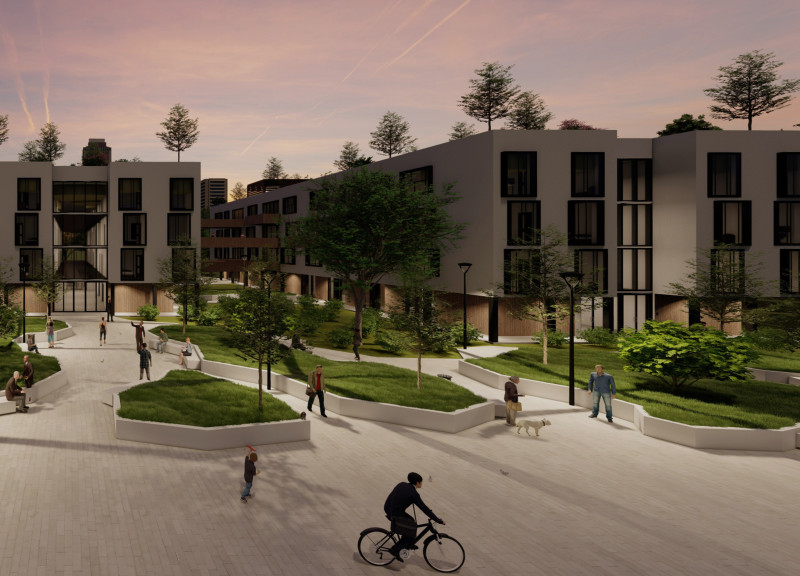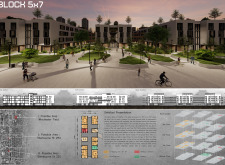5 key facts about this project
The Co-Housing community is organized around a modular design that features a 5m x 7m raster, allowing for living spaces of either 35m² or 70m². The intention is to create an environment that prioritizes sustainability and fosters a sense of community among residents. By integrating both communal spaces and private units, the design emphasizes the importance of interaction while still respecting individual privacy.
Spatial Organization
Communal living areas are primarily located on the ground floor, where the design includes a dining area and a large kitchen with storage options. This layout encourages residents to gather and share meals, which can help strengthen their bonds. Additional features like restrooms, a gym, and an office further enhance the practicality of the space, making daily activities more convenient.
Upper Levels
On the upper floors, the 1st, 2nd, and 3rd levels provide individual living units. Each unit is designed to include both kitchenettes and laundry facilities. This arrangement addresses essential needs while allowing for personal space. The balance between private living areas and communal amenities supports a lifestyle that values both solitude and community.
Special Features
A significant element of the design is the roof garden. This area serves various functions, including a running track for exercise and a shared vegetable garden. Residents can cultivate their own food, which promotes sustainability and encourages a connection to nature. The roof garden not only enhances the living environment but also encourages social interaction among residents.
Construction Approach
The structure is built using pre-assembled elements from JNCN Homes, featuring a pre-made structural steel frame. This choice of material contributes to a lighter and more efficient building process. The design also incorporates resilience to withstand harsh environmental conditions, such as high winds, heavy snow loads, and seismic activities. This thoughtful approach ensures that the community remains sustainable and durable over time.
The roof garden offers a green space that enhances the urban environment, providing opportunities for relaxation and cultivating plants. It reinforces the community's commitment to sustainability while enriching the daily lives of its residents.




















































